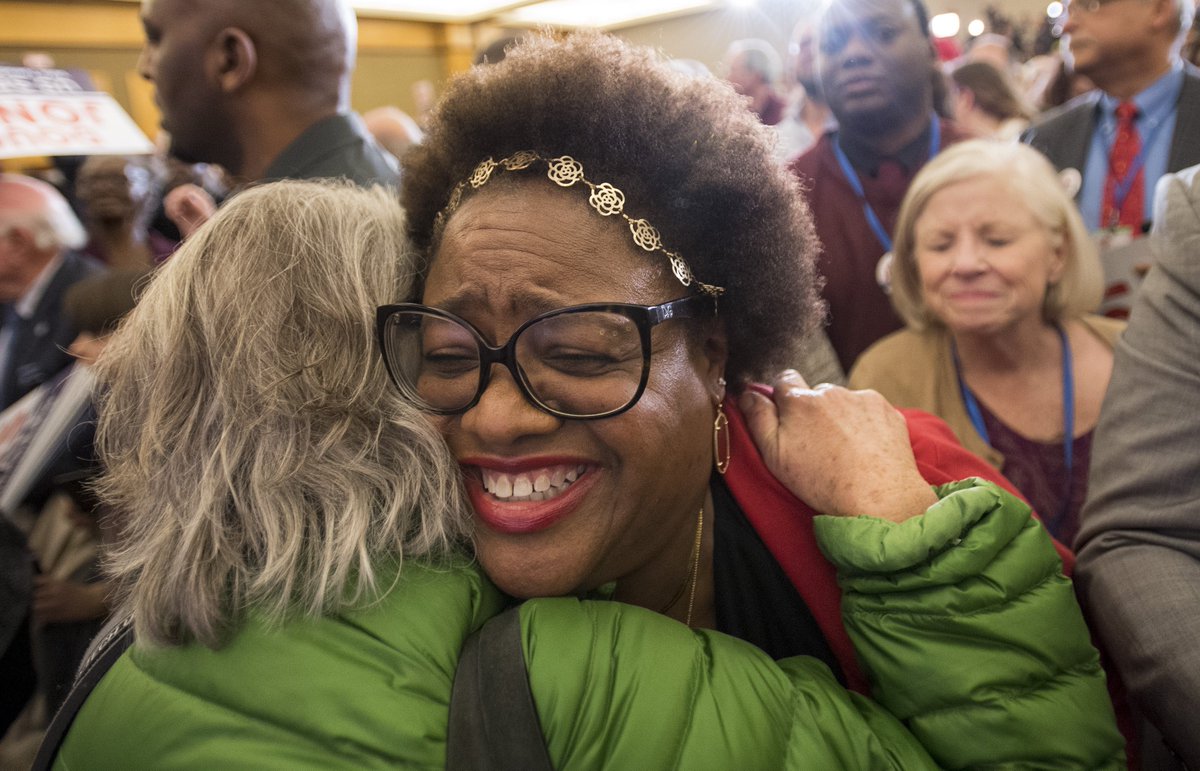
There was a morbid thought during the special election on December 12th, that Alabama would elect an accused pedophile, anti-gay and anti-abortion as Senator to replace Jeffrey Beauregard Sessions. As election results trickled in, it seemed that Alabamians would do just that; but in a surprise upset, Doug Jones won a senate seat that has not been occupied by a Democrat since 1992, and that was all thanks to Black women and Black men.
To say that African Americans faced an uphill battle getting to the polls is an understatement. As the election wore on, reports of voter suppression came in droves. By 3:24 pm, The Lawyers’ Committee for Civil Rights Under Law voter hotline had received 235 calls. The NAACP Legal Defense Fund began collecting reports about people being put on inactive status, and either prevented from voting or given provisional ballots to cast their vote. To deter people from voting, police began showing up at polling stations, most notably in Montgomery, where in previous elections police checked voters for outstanding warrants.
Those were just the obstacles on election day. In 2011, Alabama passed one of the strictest voter ID laws in the country. Voters must have at least one of several specific kinds of photo ID to cast their ballot, including;
- Driver’s License;
- Non-Driver ID;
- US Passport;
- Student or employee ID at a college or university in Alabama; or
- Military or Tribal ID
Under the guise of stopping voter election fraud, which rarely occurs, these laws disproportionately impact Black voters, who are often likely to have the means to obtain a voter ID. Since 25% of Alabama’s electorate is Black and Black residents tend to vote Democrat, having proper IDs was going to be crucial in this race. In a close election, the turnout that is impacted by voter ID laws, reducing it by a percentage point or two, could have swung the race.
Despite restrictions and reports of voter suppression, African Americans went to the polls, and gave Jones the votes he needed to eke out a victory over Moore. Over 98% of Black women and 93% of Black men voted for Jones, It was Black women and Black men who handed Jones his victory. Despite his anti-gay, sexist, racist, and homophobic rhetoric, despite multiple women accusing him of molesting them when they were teenagers, Moore was still able to capture a very sizeable portion of the white women vote.
White women, at this point we need to decide, right now, whether we want to join Black women and men and fight back against racism and sexism in politics, and everywhere, or continuously fight to maintain our white privilege in the face of rising gender inequality. We should not be fighting to put a child predator in the Senate; there shouldn’t have been a chance that would have happened. The fact that some women had to struggle, internally, to vote against Moore is egregious. And yet, here we are.
To the Democratic Party, there needs to be some serious discussion on how to give full representative voices to African Americans and minorities other than praying that they pull through during elections and save us from falling further away from common decency. We only give our thanks and strength to minorities when it benefits us politically; we are no closer to passing a clean DREAM Act, despite the fact that Democrats overwhelming voted to fund the government while undocumented minorities face the threat of deportation. Black communities are still reeling from mandatory minimums and three strike laws that were a part of Democratic President Bill Clinton’s “Tough on Crime” agenda, ballooning the already rising prison population and moving us into being one of the largest jailers in the world, and those incarcerated are disproportionately African American women and men. If you want to thank a Black woman or Black man for their part in the defeat of a child molester (especially since white men and women weren’t motivated to do so), start by addressing the damage that has been done to Black communities, and work to give back to them.
Today, we should be feel victorious. Tomorrow we need to work harder.

Lisa McNair, sister of one of the four girls killed in the 1963 church bombing, hears the news
(Image Credit: The Washington Post) (Photo Credit: The Root / Mickey Welsh)